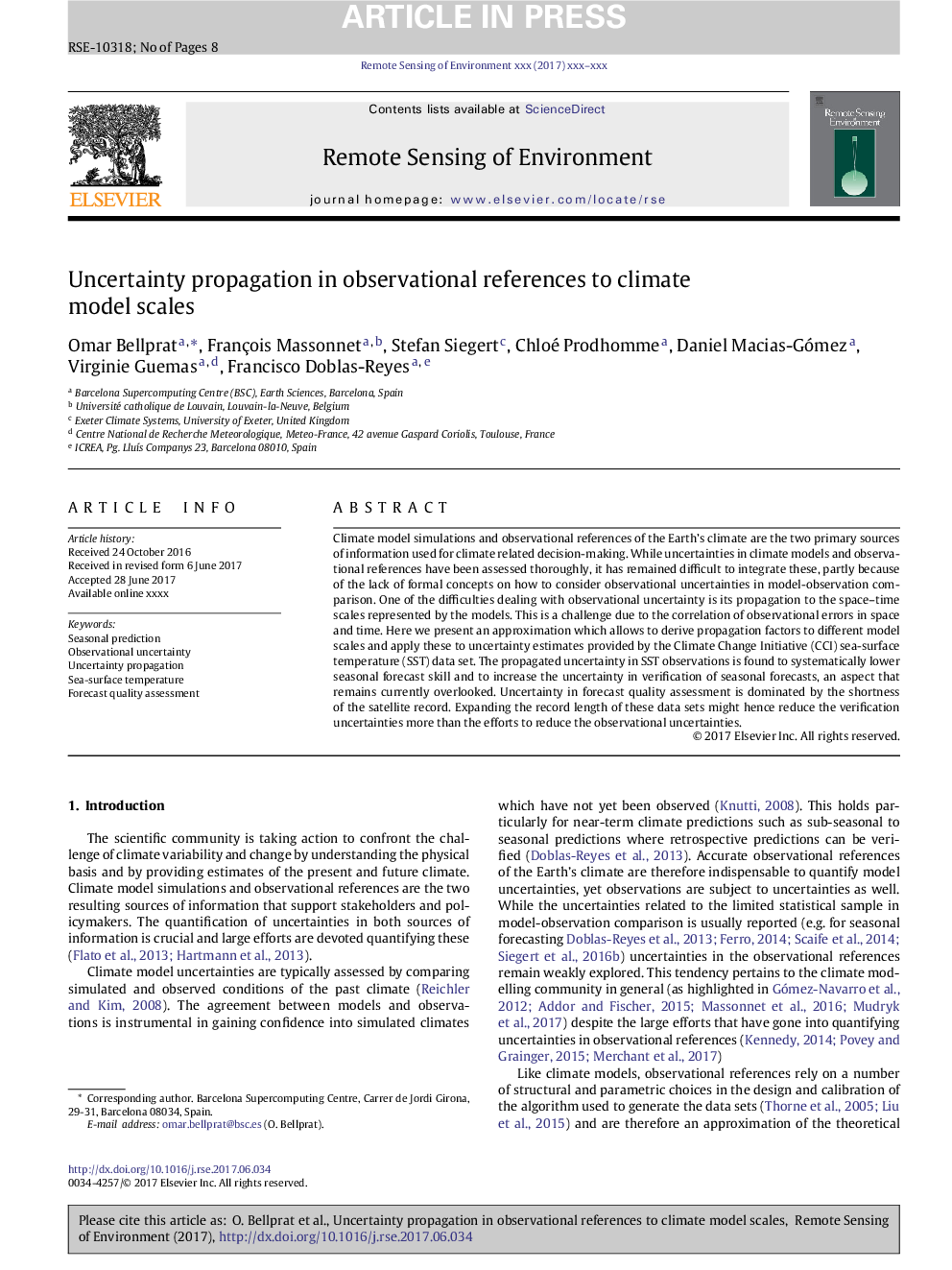| Article ID | Journal | Published Year | Pages | File Type |
|---|---|---|---|---|
| 8866935 | Remote Sensing of Environment | 2017 | 8 Pages |
Abstract
Climate model simulations and observational references of the Earth's climate are the two primary sources of information used for climate related decision-making. While uncertainties in climate models and observational references have been assessed thoroughly, it has remained difficult to integrate these, partly because of the lack of formal concepts on how to consider observational uncertainties in model-observation comparison. One of the difficulties dealing with observational uncertainty is its propagation to the space-time scales represented by the models. This is a challenge due to the correlation of observational errors in space and time. Here we present an approximation which allows to derive propagation factors to different model scales and apply these to uncertainty estimates provided by the Climate Change Initiative (CCI) sea-surface temperature (SST) data set. The propagated uncertainty in SST observations is found to systematically lower seasonal forecast skill and to increase the uncertainty in verification of seasonal forecasts, an aspect that remains currently overlooked. Uncertainty in forecast quality assessment is dominated by the shortness of the satellite record. Expanding the record length of these data sets might hence reduce the verification uncertainties more than the efforts to reduce the observational uncertainties.
Related Topics
Physical Sciences and Engineering
Earth and Planetary Sciences
Computers in Earth Sciences
Authors
Omar Bellprat, François Massonnet, Stefan Siegert, Chloé Prodhomme, Daniel Macias-Gómez, Virginie Guemas, Francisco Doblas-Reyes,
